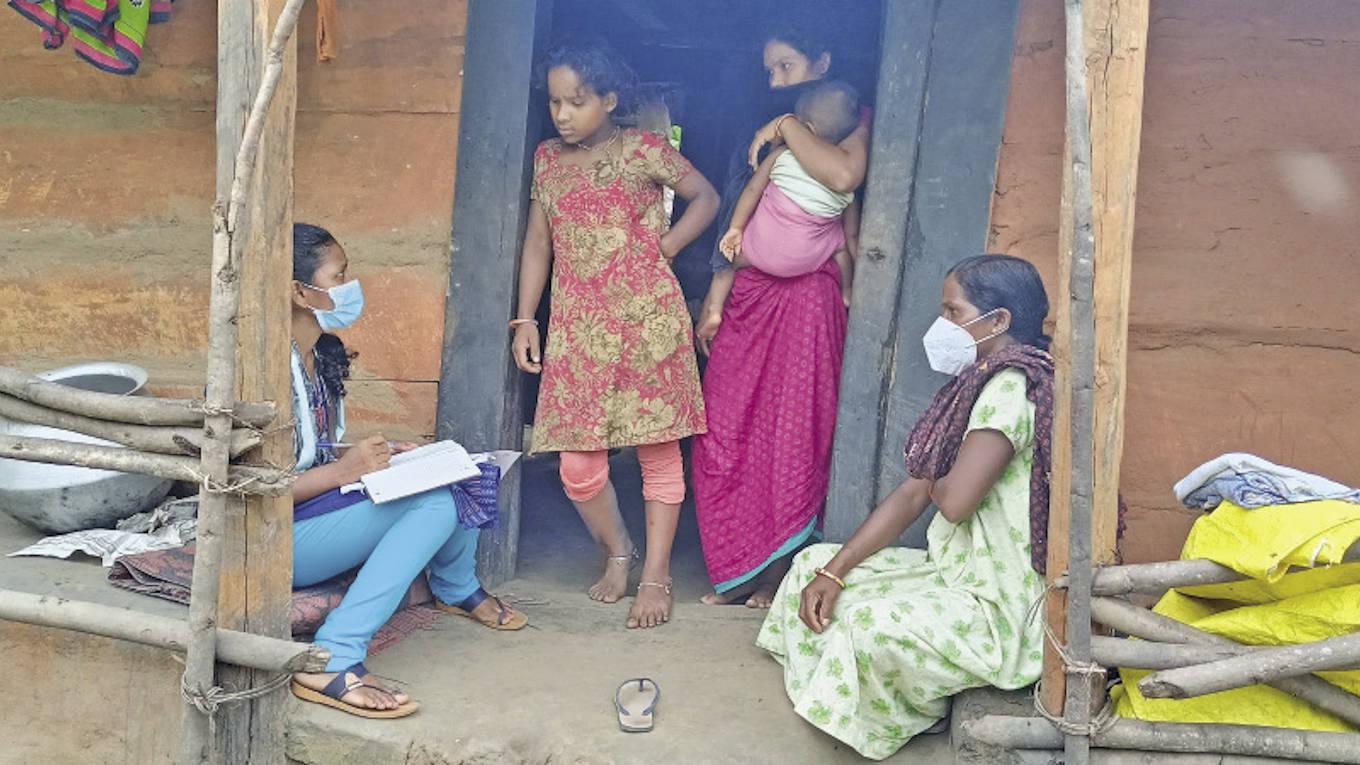The vast majority of menstruating women in India face many social and economic challenges. Extreme poverty and gender disparity exacerbate this problem. Menstruation is treated as a taboo in much of India, further risking the health and wellbeing of women. The Mindtree Foundation collaborated with Goonj for a programme that involved working with Kui tribal women to help them understand the importance of physical and menstrual health and hygiene. The team makes ‘MY Pad’ kits of sanitary pads from surplus cotton cloth collected in cities and distributes these kits free of cost to the tribal women. Each pack of Goonj’s MY Pad clean cloth sanitary pads contains eight ‘MY Pads’ with three pad covers, one undergarment, an information leaflet, a waterproof pouch (made from used flex, based on availability) for a woman to carry her pad for washing and reuse, one set of women’s clothing/woollens or aasan (sitting mat)/dari, toiletries/medical kits and other items of daily utility and Goonj ka Jhola (Goonj’s handmade, eco-friendly cloth bags). Through the #NotJustAPieceOfCloth programme, Mindtree supports 2,500 women and adolescent girls, discouraging them from using sand, ash, rags or cow dung during menstruation, and ensuring better health and hygiene. They also involve these tribal women in finding relevant circumstantial solutions to their problems, train them in specific skills, and help them earn a livelihood with dignity. Community-level meetings The Mindtree Foundation has been driving the collection of surplus cloth year on year, collecting and sending old clothes to Goonj every month for making sanitary pads. To help these women open up on the subject of menstruation, community-level meetings and exhibitions on menstrual hygiene are conducted. In the interest of their health and hygiene, they are also encouraged to prepare nutritious food, set up kitchen gardens, make private spaces for bathing, clean water bodies, and so on. When Reshma started menstruating at the age of 17, she would go to the well for a bath during her menstrual cycle. It was an open well without a boundary wall. As some young boys would also play near the well, she could not maintain personal hygiene and returned home feeling disappointed. She avoided going to the well for a bath for the next three days. After the awareness session, the villagers decided to build a bathroom around the well. This was well-received by the women, who could now maintain cleanliness and personal hygiene. The Mindtree Foundation has been supporting this project for the last two years, benefiting more than 7,500 women.
-

Mindtree supports the awareness campaign of personal hygiene among the Kui tribal women

































